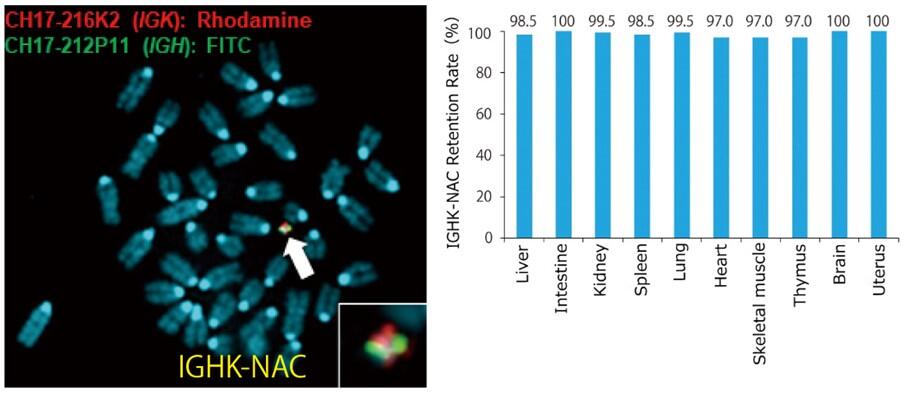Reproduction of human antibody diversity, contributing to the production of safe biopharmaceuticals
In 2022, antibody drugs make up over half of the top 10 drugs sold around the world, and play a key role in treatment of cancer, infections and autoimmune disorders. To generate and practically apply antibody drugs, quick and efficient development of human antibodies is vital.
A joint research group consisting of Associate Professor Yasuhiro Kazuki of the School of Life Science, Faculty of Medicine/Chromosome Engineering Research Center, Tottori University and his colleagues has succeeded in creating a new fully human antibody-producing mouse using their original chromosome engineering techniques. The mouse artificial choromosome (MAC) vector developed by the group so far has enabled a variety of applications that were not achievable with the conventional transgenic techniques. This time, 3.5 million base pairs that make up the total length of the genetic loci of human immunoglobulin (an antibody) were loaded onto the MAC vector, and introducing this to a mouse has made it possible to stably maintain the complete length of the genetic loci of human antibody in the mouse.
Through analyzing the generated mouse model, the frequency of use of the V(D)J sequence, which is responsible for the diversity of antibodies, and the length of CDR3, which determines the specificity against antigens, were found similar to those in humans. It is thought that the antibody repertoire (diversity) seen in humans has been reproduced in this model.
Until now, existing human antibody-producing mice have been monopolized by a few companies, and researchers have not been able to easily obtain them. The fully human antibody-producing mouse created through this research will be made widely available to public research institutions in Japan and overseas, with the hope that this will lead to the development of innovative biopharmaceuticals, including antibody drugs.





